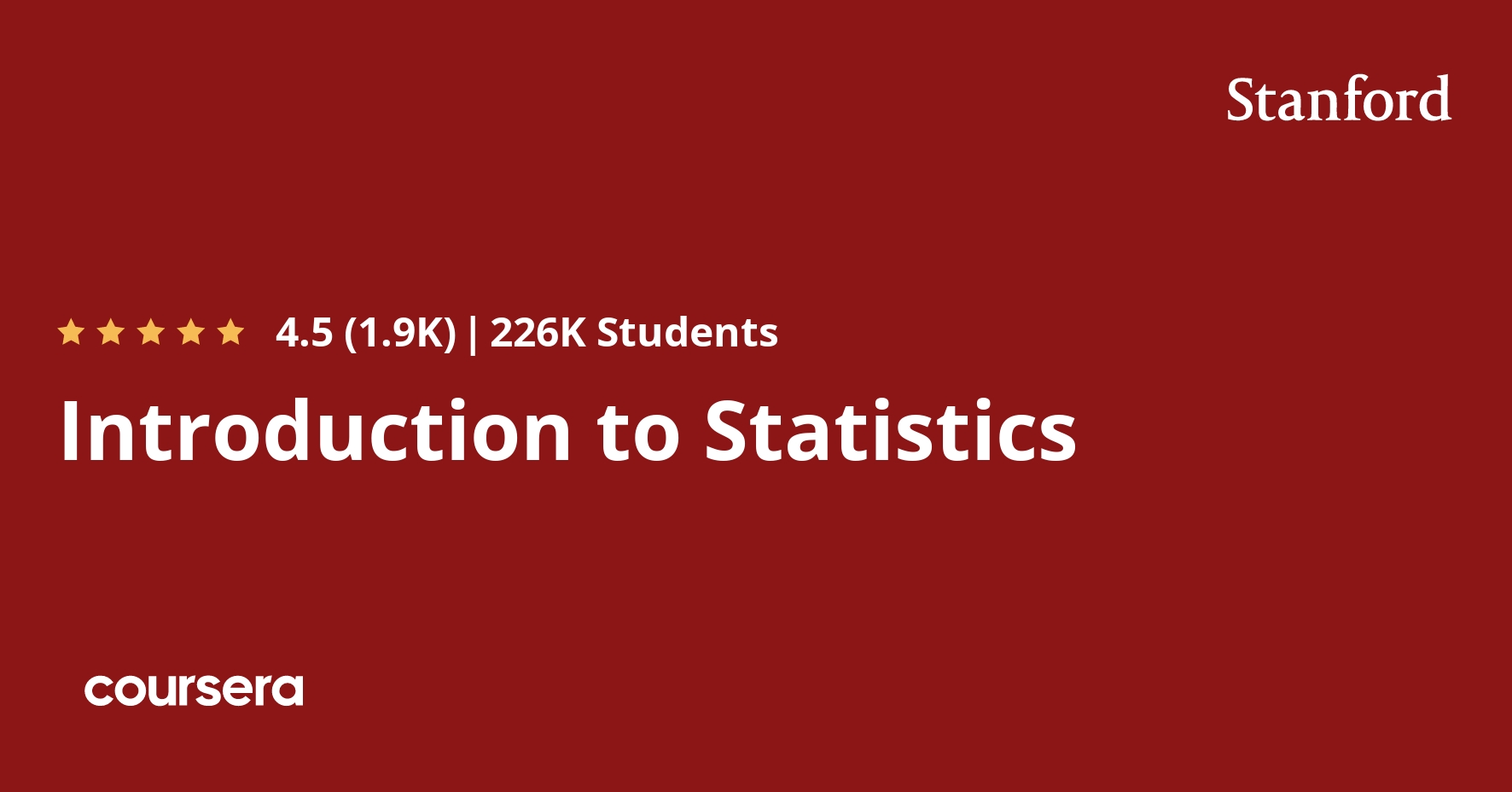Description
Stanford’s “Introduction to Statistics” teaches you statistical thinking concepts that are essential for learning from data and communicating insights. By the end of the course, you will be able to perform exploratory data analysis, understand key principles of sampling, and select appropriate tests of significance for multiple contexts. You will gain the foundational skills that prepare you to pursue more advanced topics in statistical thinking and machine learning.
Topics include Descriptive Statistics, Sampling and Randomized Controlled Experiments, Probability, Sampling Distributions and the Central Limit Theorem, Regression, Common Tests of Significance, Resampling, Multiple Comparisons.
What you will learn
Introduction and Descriptive Statistics for Exploring Data
This module provides an overview of the course and a review of the main tools used in descriptive statistics to visualize information.
Producing Data and Sampling
In this module, you will look at the main concepts for sampling and designing experiments. You will learn about curious pitfalls and how to evaluate the effectiveness of such experiments.
Probability
In this module, you will learn about the definition of probability and the essential rules of probability that you will need for solving both simple and complex challenges. You will also learn about examples of how simple rules of probability are used to create solutions for real-life complex situations.
Normal Approximation and Binomial Distribution
This module covers the empirical rule and normal approximation for data, a technique that is used in many statistical procedures. You will also learn about the binomial distribution and the basics of random variables.
Sampling Distributions and the Central Limit Theorem
In this module, you will learn about the Law of Large Numbers and the Central Limit Theorem. You will also learn how to differentiate between the different types of histograms present in statistical analysis.
Regression
This module covers regression, arguably the most important statistical technique based on its versatility to solve different types of statistical problems. You will learn about inference, regression, and how to do regression diagnostics.




